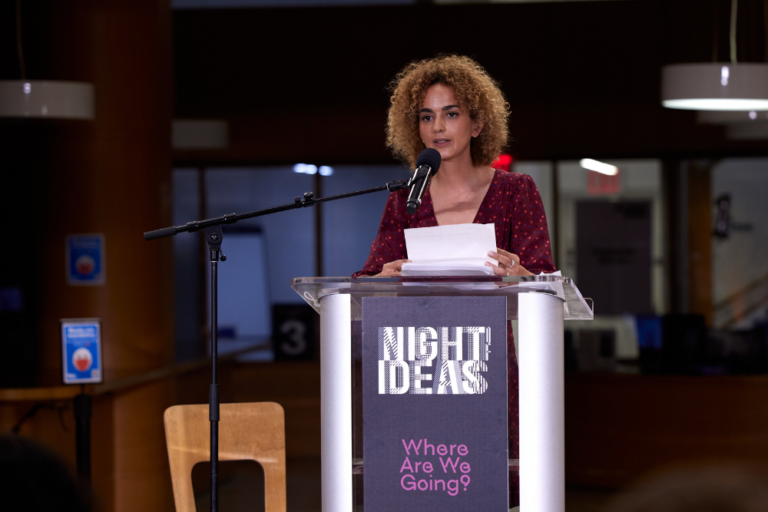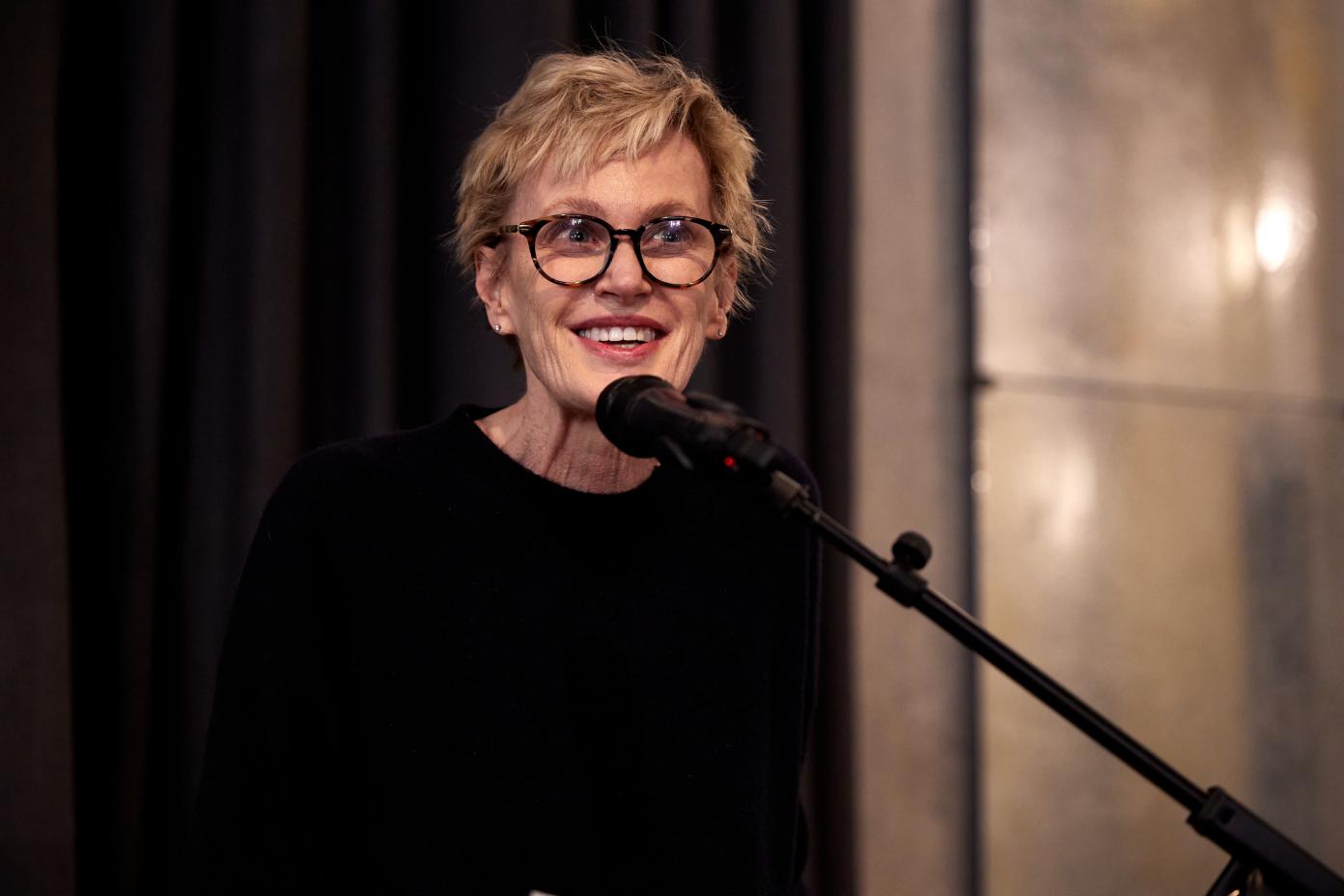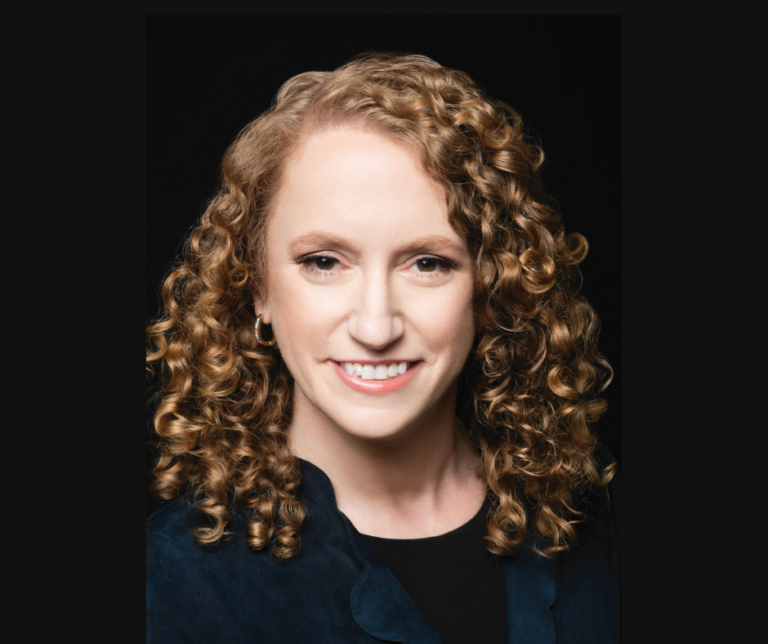
Reading Is Letting Other Voices Resonate

© Argenis Apolinario
By Siri Hustvedt
During the US Goncourt Prize Selection ceremony on April 30, 2022, Anne Berest’s “La Carte Postale” was awarded, and writer Siri Hustvedt spoke to the students part of the jury. In her speech copied below, the president of the 2022 edition of the prize revisited what it means to defend a book.
If you pause for a moment and think about it, reading is a strange business. The reader casts her eyes on a page or screen, and if she has learned the secret of decoding the abstract marks, she registers the characters as meaningful. Other animals can’t do it. Mice do not have libraries. But writing is a much later development in the story of our species than speech, and there has always been for me, a magical feeling that through those little signs, I have been able to converse with the dead.
And yet, reading is far more than word comprehension. It is an immersion in another person’s voice and prose rhythms. The author’s words take over the reader’s consciousness and supplant his, her, or their internal narrator—the inner voice that accompanies every person through the day. It is impossible to read and keep up your own narration at the same time. You can pause to digest meanings or puzzle over what is happening in the story, but your own words and the words of the book cannot run simultaneously. Reading then is a kind of possession by another person for the duration of the book, and that intimacy between reader and book can and does change lives.
The reader also invents the book, which means no two readings of the same text are identical. They may be similar but never identical. How the words are embodied and lived—the feelings, thoughts, and images that are called into being—is dependent on the reader, her past, her learning, her prejudices, her personality, all within the context of the larger culture in which she lives. After all, language is by its very nature collective and its meanings are shared. Nevertheless, words are never limited to their dead dictionary meanings. Their meanings slip, slide, and may change into their opposites, depending on their context.
Everyone here, I suspect, has had the experience of falling in love with a book and then listening to another person dismiss it. We call this a difference of literary taste. What tastes good to me, you spit out in revulsion. Fights over books are common and healthy. A glance at literary history tells us that highly lauded books in their time may fall away while others rise to prominence. We like to think that this represents a kind of justice, but I don’t think that’s true. I am convinced there are many great books that have been forgotten or actively suppressed because the wrong kind of person wrote them.
Those who have been anointed to read for literary prizes are not free of the constraints every reader has—inherited cultural biases, a lack of openness to a certain kind of text, and myriad other forms of blind spots. Indeed the tiny number of women who have won the Goncourt Prize over its long history alerts us not to the dearth of excellent writers who have been and are women writing in French, but rather to entrenched power hierarchies and ideas that lie deep in a culture’s conscious and unconscious life. It is salutary to recall that the Goncourt brothers were zealous proponents of female inferiority: “Woman is an evil, stupid animal” and “…she is incapable of dreaming, thinking, or loving.”
That said, the idea of exporting a prize for Francophone literature to students in various places, including the United States, a prize that already embraces the diverse geographies and dialects of a single language strikes me as a form of pluralism I can heartily endorse. The act itself supports the notion that a literature is not a territory with hard borders created by dubious authorities, but a land where the borders blur and can be drawn in multiple ways. For a jury to choose a book means discussing other books, asking questions, debating merit, taking a position and exercising the art of persuasion. It requires thought and passion. I know. I have served on juries myself. At times, my arguments have lost the day. Other times, I have won. Making a choice calls upon students of literature to engage in their own rigorous understanding of why this or that text matters to them and why it should matter to others.
In an age of rising authoritarianism, war in Europe, mad fictions that circulate as historical realities, an age when belligerent racism, xenophobia, and misogyny drown out measured voices, and when media, all media with few exceptions, merely repeat the worn phrases of unexamined cultural truisms, we need literature. We need it because it speaks in another tongue. We need it to open us to the genuine ambiguities that are part of being alive and lift us out of our own circumscribed narrations about how things really are. The novel is a polyphonic form, that is, it is made of many voices, not just one, voices that are often in conflict with one another. The best novels are never stuck in a single view. They represent multiple perspectives. They are dialogical, not monological, democratic, not autocratic. Copious reading in many literatures does expand a person’s consciousness, which at the very least calls the provincial and sectarian into question.
The magic of books is that those strange little marks on the page are fixed, and if you are able to make sense of them, they can endure, and their ongoing meanings will depend, not on oldsters like me, but on young readers, readers like those of you here today, who will carry the thoughts, feelings, and images evoked by the many books you have read with you as you create the future.
Siri Hustvedt is the author of a book of poetry, three collections of essays, a work of non-fiction, and six novels, including the international bestsellers What I Loved and The Summer Without Men. Her most recent novel The Blazing World was long-listed for the Man Booker Prize and won The Los Angeles Book Prize for fiction. In 2012 she was awarded the International Gabarron Prize for Thought and Humanities. She has a PhD in English from Columbia University and is a lecturer in psychiatry at Weil Cornell Medical College in New York. Her work has been translated into over thirty languages.
Subscribe to the Villa Albertine Magazine newsletter

